Recently on Northern Slant, members of our team shared who and what has inspired them during the pandemic and their hopes for Northern Ireland’s future after the crisis. As the lockdown measures in Northern Ireland begin to ease, what about reflections on their own lives? Have their perceptions of Northern Ireland changed? What can we do together to create a better society? We’ve shared their thoughts below. If you’d like to contribute too, get in touch via our Contact Us page.
Images found throughout the article are from around Northern Ireland, shared on Northern Slant down the years.
We’re always on the lookout for constructive opinions on Northern Ireland politics and society – if you’d like to get involved at Northern Slant, contact us through our website, Facebook page or Twitter @NorthernSlant.
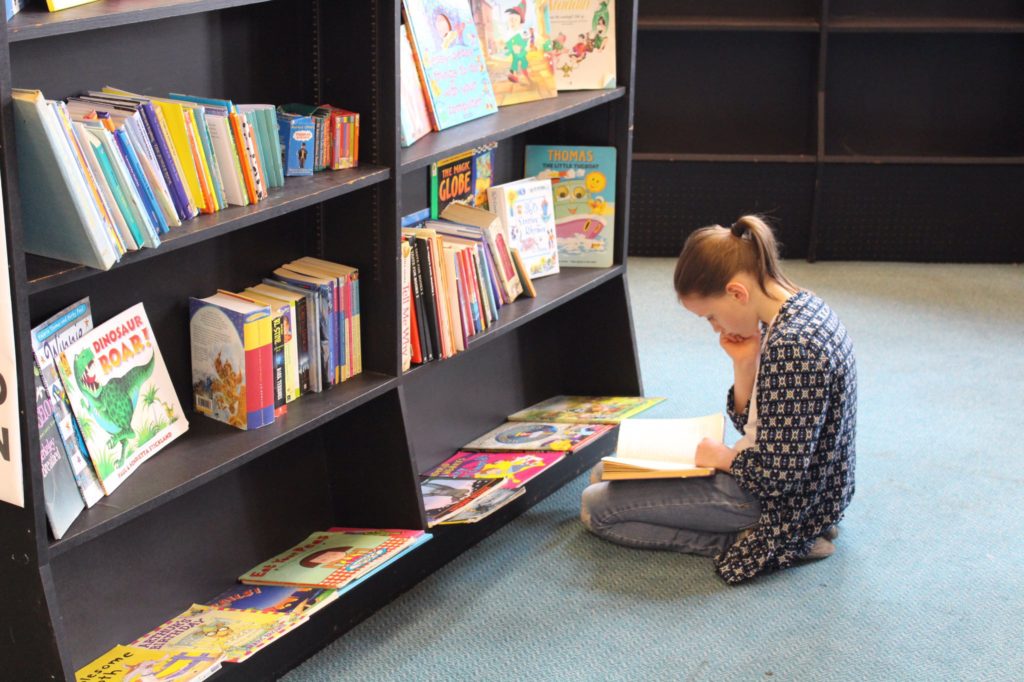
Lisa Whitten
What have you learned about yourself during the lockdown?
I spend an embarrassing amount of money in coffee shops.
Do you think – or hope – your life will be different in any way after the lockdown?
In so many ways! It is likely that I’ll be working from home for the foreseeable, which means many of my life rhythms that have changed during lockdown will stay changed. Things like, absent a gym, I’ve rediscovered my love of long runs and have finally joined the yogi sub-culture. I am also quite sure I’ll go to a great many more virtual conferences than I otherwise would have done and therefore clock-up a whole lot less air miles, which is no bad thing!
Have your perceptions of Northern Ireland society or your local community changed?
Not really, to be honest. I think any crisis reveals a society or community for what they are – for better and worse. I tend to think that the best of Northern Irish society often lies just below the surface, or rather the headlines, but when it comes to the crunch there is often more solidarity there than might appear at first glance.
How do you think we can build a better Northern Ireland than we knew before the crisis?
Absolutely. I think there is something so formative about facing a common enemy and, for Northern Ireland, coronavirus is just that. On a micro and macro level I think Northern Ireland is learning that the most fundamental needs are shared by us all. It doesn’t matter so much what box a person ticks on a census form or in a voting booth when they’re caring for your sick relatives or delivering your essential goods. So, I think the collective experience of this pandemic means that we cannot help but build a better Northern Ireland on the other side, simply because we’ve been through it together.
Has there been a particular book, TV show or movie that has provided the perfect lockdown distraction?
About three weeks into lockdown, I started watching The West Wing series one and it’s been a delightful, escapist distraction that borders on therapy! I am nearing the end of series three and while The West Wing is still excellent, it is disconcerting that the reality of US politics now makes the drama look tame.
If you could invite anyone to a post-lockdown dinner party, who would you choose and why?
New Zealand Prime Minister Jacinda Arden, although based on her governments’ policies on travel, I doubt she’d come! Throughout the crisis, I’ve been so impressed watching her lead her country with such composure and authenticity, even staying calm and collected as an earthquake started during a live TV interview. So essentially, I’d invite her to a post-lockdown dinner party because I want to be her friend!
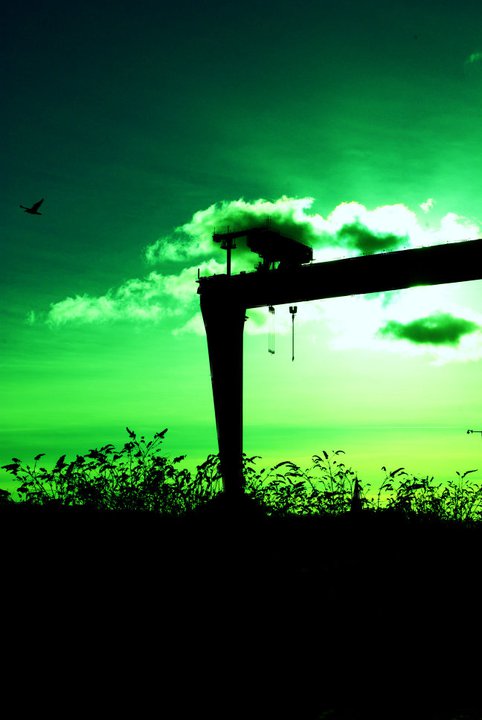
Ruairi McCallan
What have you learned about yourself during the lockdown?
I’ve learned I’ve got a lot more self-confidence than I’d originally thought. Working remotely means I’ve had time to do training and professional development courses that I thought I’d either never do or just be awful at, but I’ve found that I’m actually much more adept at certain skills than I’d thought!
Do you think – or hope – your life will be different in any way after the lockdown?
I’m not sure if it will be totally different, at least not in a bad way – the time working remotely and the new opportunities that has given me has certainly made me think about the future direction of my career and where I might end up, whilst I also hope the crisis as a whole will stir a conversation about individual wellbeing and the need for a work-life balance to ensure people can spend quality time with their loved ones, or pursuing new opportunities.
Have your perceptions of Northern Ireland society or your local community changed?
It’s become slightly more positive. I mean, the threats to elected officials are obviously not good and show there’s still unresolved matters to deal with, but that fact we’ve largely avoided to be entirely divided at either a national or local level in terms of how to respond to those threats and Covid-19 is positive.
How do you think we can build a better Northern Ireland than we knew before the crisis?
Aside from politicians not acting like petty children, there needs to be a further transfer of powers to Stormont, no matter what happens in terms of Brexit. Whilst Boris’ deal isn’t great (a real understatement) the status of NI will change greatly as a result of it, so it only seems fair for the region to have greater control over economic affairs (after all, that’s what Brexit was supposed to be about, right?)
Has there been a particular book, TV show or movie that has provided the perfect lockdown distraction?
I’ve really been enjoying the work of Natalia Ginzburg, an author and politician who was a fairly prominent member of the Italian anti-fascist movement during WW2. I’d recommend Voices in the Evening in particular – it’s a quite intimate portrayal of life after the war and how fascism divided families and caused so much suffering.
If you could invite anyone to a post-lockdown dinner party, who would you choose and why?
Either Emmanuel Macron or Alexandria Ocasio-Cortez; Macron recently gave a great interview where he shared his thoughts on the future of both Europe and, more generally, liberal democracy around the world, so it’d be interesting to hear more on that. For AOC, it would be very interesting to hear her thoughts on having to legislate on such a big crisis at a relatively early stage in her political career, and whether she thinks it could change approaches to work and welfare in the US.
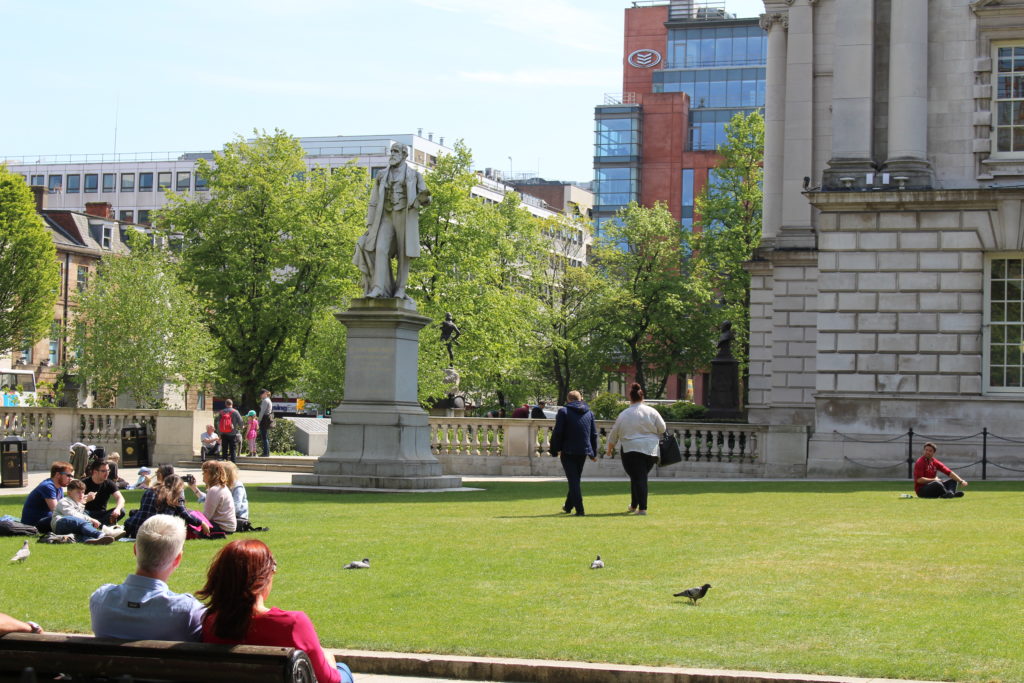
Ben McAteer
What have you learned about yourself during the lockdown?
Like many of us, I have been hit by a wave of realisation over the last two months. I’ve recognised that there are many things that I’ve often taken for granted and I’ve learnt to appreciate how fortunate I am. The lockdown has opened my eyes to what real vulnerability and dependence is, and, as a result, I have a better ability to place things in perspective. On a more trivial level, I’ve also learnt that keeping in contact with others is much easier than I previously believed. I probably talk with family and friends more often now, albeit in a virtual manner, than I did beforehand. That is one thing that I’ll certainly extend post-lockdown.
Do you think – or hope – your life will be different in any way after the lockdown?
There will, undoubtedly, be big changes to daily life post-lockdown. I will almost certainly continue to work from home until the end of the year and the teaching element of my position will remain a virtual process. Even well after the pandemic, these forms of work might become the norm for me, so I guess it’s good to get used to them now. In the recreational realm, I will definitely be spending more time outdoors after the lockdown. I’ve really missed the sea, for physical and mental reasons, so I’ll be sure to go out of my way more often to be by the coast.
Have your perceptions of Northern Ireland society or your local community changed?
My perceptions might not have changed, but I’ve definitely become more aware to things. I’ve felt a really strong sense of togetherness throughout parts of Belfast, with stumbling blocks of old put aside for the time being. It’s made me appreciate that the bigger picture of something like a pandemic can render territorial or class issues almost obsolete, and push communities to focus on the collective. Like most of us, I’m hopeful this approach can be continued into the future, ensuring that decisions on healthcare, education, energy and transport, for instance, can be debated with the collective in mind.
How do you think we can build a better Northern Ireland than we knew before the crisis?
The phrase ‘never waste a crisis’ is perfectly apt for the moment we find ourselves in. Although the impacts of COVID-19 have been vast, with many more still to reveal themselves, we must also see them as an opportunity. The virus has created for a ‘paradigm changing moment’ for so many sectors and it would be a backward step to neglect this potential prospect. Encouragingly, the urgency and determination of Northern Ireland’s approach to implementing and maintaining lockdown has been a breath of fresh air. It’s revealed that radical, sweeping change is possible and it’s crucial that we continue down this path, rather than returning to ‘business as usual’ post-lockdown. We must work to create a more sustainable political economy, and I’m confident that we will.
Has there been a particular book, TV show or movie that has provided the perfect lockdown distraction?
One film that wasn’t the best distraction was Contagion, although I knew what I was getting into when putting it on. A better distraction was You Were Never Really Here, which was accompanied with a beautiful Jonny Greenwood score. I’ve really enjoyed a couple of series as well, especially Unorthodox, Chernobyl and revisiting Louis Theroux’s Weird Weekends documentaries. Ernest Hemingway’s Fiesta (The Sun Also Rises) is a book that’s helped to escape the stresses of lockdown, while the new Strokes album brightened things up too. Finally, as a big rugby fan, I’ve been forced to substitute live matches for classic games. So I’ve enjoyed re-watching some great Irish days in the sun again.
If you could invite anyone to a post-lockdown dinner party, who would you choose and why?
This is a question that’s been debated in a few family video calls during lockdown. Bending the rules to include the deceased, I think we settled on Michael D. Higgins (assuming he brings his dogs), Che Guevara, Carrie Fisher and Michelle Obama. Although I’d also keep a few spare seats for James Baldwin, Diego Maradona and Bob Ross, should they want to join.
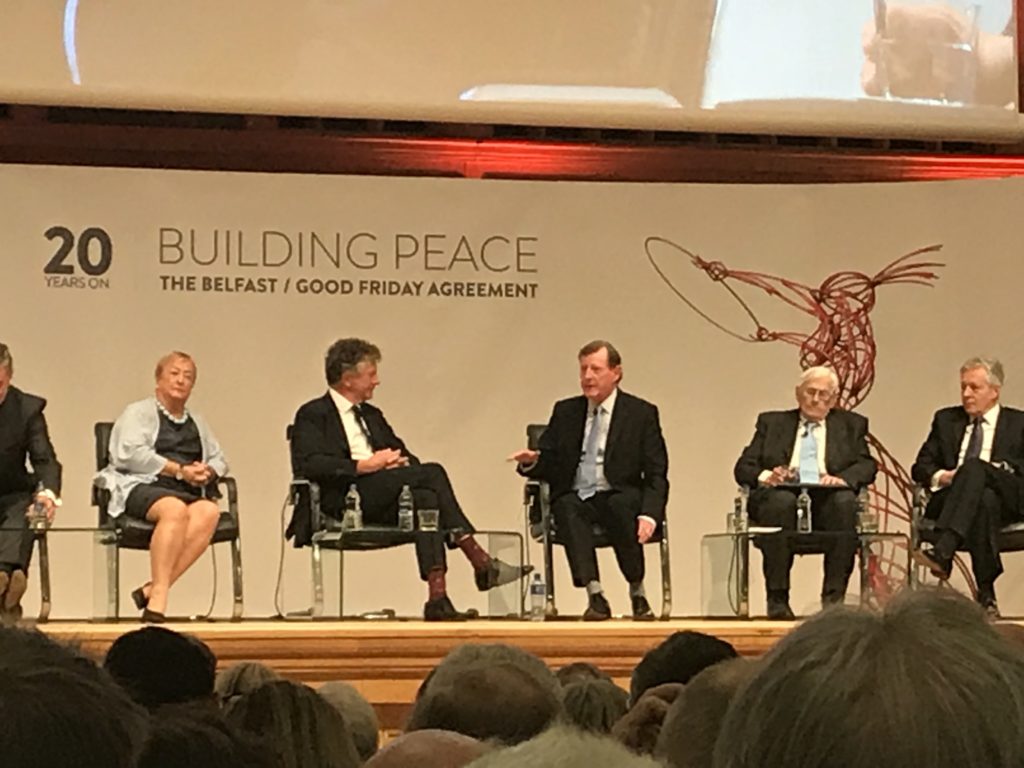
John Coulter
What have you learned about yourself during the lockdown?
I’ve learned to spend more time in personal Christian devotions. Being a journalist can dominate your life 24/7 pushing your Christian faith into a convenient time slot. This lockdown has been a rejuvenation of my personal Christian faith. As a family man, too, I’ve had to adapt and find new methods of looking after my severely autistic 25-year-old son who doesn’t understand the concept of lockdown.
Do you think – or hope – your life will be different in any way after the lockdown?
I hope that I will be able to maintain my personal Christian devotion time; I want to be able to devote more time to Christian evangelism and outreach work. As a lecturer in journalism, I have used technology more to develop remote lectures. I can see more time being spent on developing online distance learning courses in journalism. I’m looking forward to returning to writing political analysis on a positive way forward for Ireland as a whole.
Have your perceptions of Northern Ireland society or your local community changed?
I’ve seen the people of Northern Ireland pull together as a united community; I hope this spirit of unity will see a mass movement to influence the various political parties to work together for the benefit of all citizens in the Province, rather than trying to score cheap political points.
How do you think we can build a better Northern Ireland than we knew before the crisis?
The Christian churches have an important role to play in this building process. While church buildings were shut, the majority moved online with remote services and Bible studies. Pre-lockdown, church attendances were falling; online, in many places they have risen dramatically. The real challenge for churches is to retain all these people who have had a renewed interest in the faith. We need more caring christianity and much less ritualistic religion.
Has there been a particular book, TV show or movie that has provided the perfect lockdown distraction?
The book is Expository Preaching: Principles and Practice by Haddon W. Robinson. I have always dreamed about following in my late father’s footsteps who was an evangelical Presbyterian minister. Learning to use new online technology, I have been able to prepare a series of Gospel sermons with a view to becoming an online evangelist.
If you could invite anyone to a post-lockdown dinner party, who would you choose and why?
Stormont Health Minister Robin Swann. I have known Robin since 2007 when he was my late dad’s running mate for the NI Assembly for the UUP. He took over from my dad in 2011, and while he had a rough time as party leader, his term so far as Health Minister has been outstanding. Knowing him personally, I can testify to the professionalism and dedication he has brought to this challenging post in this difficult era.
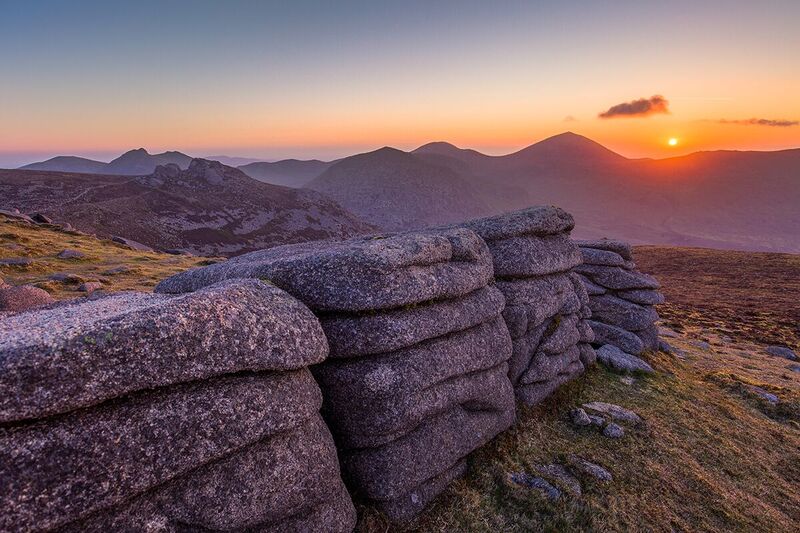
Jenny McCullough
What have you learned about yourself during the lockdown?
I’ve learned that a lot of the rest I usually get comes from being in motion – on the train, walking around – or in between places (cafés mostly). And what I always suspected but know now for sure, locked down at home: at heart I’m still a sulky teenager.
Do you think – or hope – your life will be different in any way after the lockdown?
I do. I’ve struggled to find a sense of purpose in the crisis. The lesson for me is that of course I should have been volunteering in the community already, so I’ve resolved to help more in the longer term.
Have your perceptions of Northern Ireland society or your local community changed?
Isolation from the local community has deprived me of the perceptions I form just from being out and about, and I worry more now about what I don’t see. I’ve been beyond furious to have my perceptions of the hard sectarian elements confirmed but, even at a distance, evidence of the decency, warmth and good humour of society here is all around.
How do you think we can build a better Northern Ireland than we knew before the crisis?
We need to reform Stormont, fixing the weaknesses that allowed RHI to run out of control and building on the strength that the Executive and Assembly have shown during the crisis: (for the most part) functional power-sharing by ministers, properly scrutinised by MLAs, focused on the interests of the people of Northern Ireland. Then we can apply what we’ve learned from the crisis about how our public services should be run and about forging an identity for Northern Ireland that is compatible with London and Dublin without being contingent on them.
Has there been a particular book, TV show or movie that has provided the perfect lockdown distraction?
Despite the references to the plague, lockdown and isolation, The Mirror and the Light by Hilary Mantel has been the most distracting and absorbing read. But I treasure the last book I read before lockdown, Big Girl, Small Town by Michelle Gallen, and thinking about it in this time has been a magical distraction too.
If you could invite anyone to a post-lockdown dinner party, who would you choose and why?
I would choose my longest-standing nearest and dearest – they know who they are and they know from experience to brace themselves for my catering. If I can dole out tea and buns too, then I’d ask the teams from the Queen’s Film Theatre (QFT), the BBC and the Oh Yeah Music Centre to thank them for finding new ways of being brilliant during the lockdown.
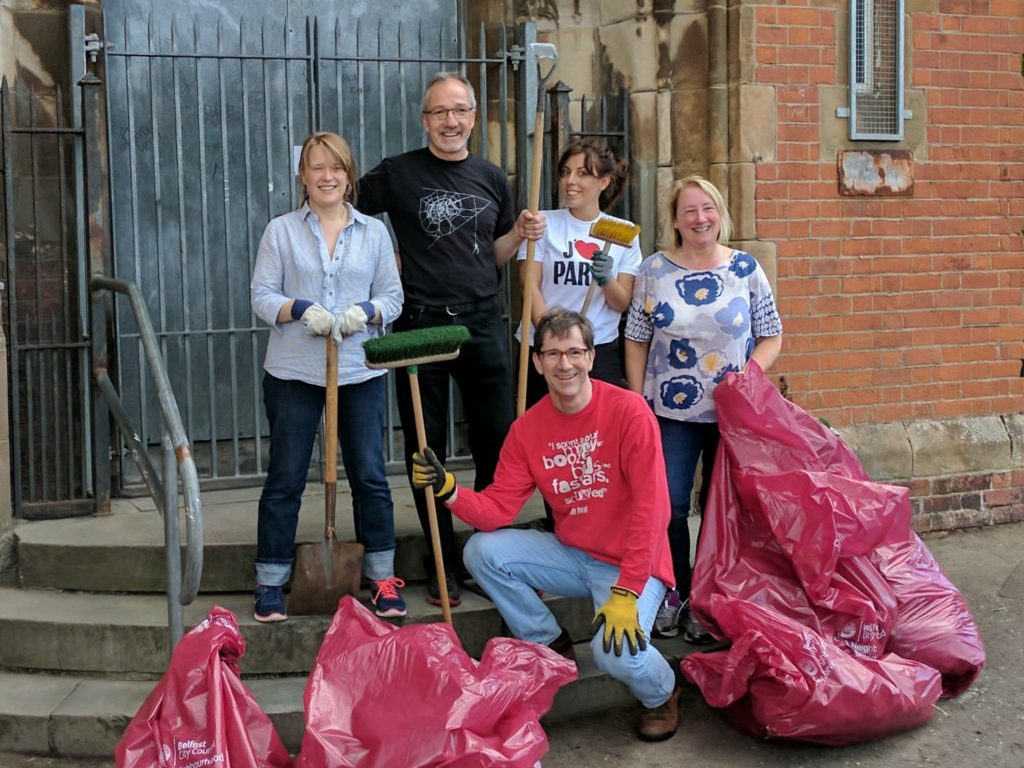
Richard Garland
What have you learned about yourself during the lockdown?
This lockdown has been something of a whirlwind of emotions for me. I have come a long way during lockdown but perhaps I have learned that I have been more impacted by things that have happened in my life than I thought I was.
Do you think – or hope – your life will be different in any way after the lockdown?
I am concerned for the future, I worry about my parents and those around me. I worry about my own health if I was to catch the disease and I worry about my future more than I used to. I do see some positives in the distance but I’m not sure what is around the corner. I’m hopeful and anxious in equal measure.
Have your perceptions of Northern Ireland society or your local community changed?
I am always proud of my community, but it made me particularly proud to see people going above and beyond to look after the elderly and vulnerable. There really are some amazing people out there and I hope we can find a way of thanking them.
How do you think we can build a better Northern Ireland than we knew before the crisis?
I think we need to get back to basics. Brexit has opened a lot of wounds and perhaps it’s time to go back and look at reconciliation, to look at the failures of the peace process – failures to address deprivation, underachievement and segregation, and of course to address the legacy of the conflict, which includes issues around mental health. In the shorter term, I think of the elderly and vulnerable people out there, many of whom are lonely and locked down in their houses. I don’t know what we can do for them, but we need to do something.
Has there been a particular book, TV show or movie that has provided the perfect lockdown distraction?
The Office (US) is the most hilarious and heart-warming TV show I have ever watched. It got me through one of the worst times of my life, and it was a pleasure to run through it again. I watched some other great shows during lockdown but this one takes the award every time.
If you could invite anyone to a post-lockdown dinner party, who would you choose and why?
I would invite a certain someone who has spoken to me nearly every day during lockdown. I would invite my pals who I haven’t seen in months, and I would invite Steve Carrell to tell him how much I enjoyed his TV show!
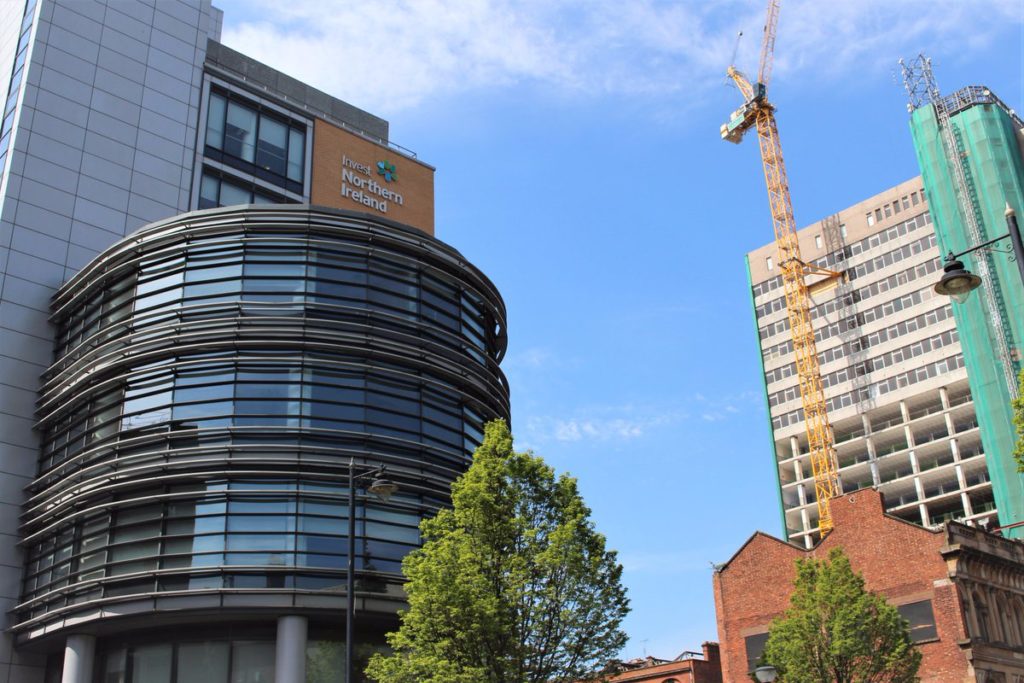
Rory Hughes
What have you learned about yourself during the lockdown?
Honestly, not that much. Last year, because of the general ineptitude of my immune system I was confined to existence within my home for months on end. So, this all feels a bit too annual an occurrence to gleam any great epiphany from the experience. Although, this time around it has become irrefutably clear that I cannot grow a beard – hair just sparsely collects around my face.
Do you think – or hope – your life will be different in any way after the lockdown?
I hope that people will become more respectful of one another’s health. As someone who has ulcerative colitis, a hidden illness, it is a source of great anxiety admitting to people the true extent of my exhaustion. In a post-lockdown world, I hope we do not forget the importance of compassion and patience for one another.
Have your perceptions of Northern Ireland society or your local community changed?
No. I think anything that is happening right now is reactive to the situation and largely influenced by necessity. The true measure of whether society has changed will only be evident once the lockdown begins to lift. What we accept as our ‘normal’ after this will be crucial.
How do you think we can build a better Northern Ireland than we knew before the crisis?
Well, the next challenge is Brexit. For Northern Ireland to financially protect itself and ensure ease of trade free with the Republic, and the EU, like right now, we need cross-party commitment to one position.
Has there been a particular book, TV show or movie that has provided the perfect lockdown distraction?
I have now completed Netflix. Twice. None of it was really that good. Surprisingly, the best content I found was in daytime television. Specifically, Daily Kitchen Live with Jack Monroe. A chef who uses real, everyday ingredients, admits their cooking mistakes and is left leaning? Hook it straight to my veins!
If you could invite anyone to a post-lockdown dinner party, who would you choose and why?
I’m struggling to think of someone niche, yet culturally influential enough to impress. Eh, let’s go for Little Simz. I’m listening to her music right now, and she seems like good craic.
